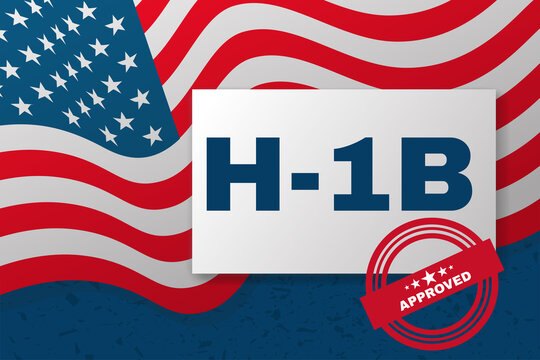
The H-1B visa program in the United States was originally conceived as a way to bridge talent gaps in specialized fields by allowing U.S. employers to temporarily hire highly skilled foreign professionals. It has become one of the most sought-after immigration pathways for professionals from countries like India and China, offering a chance at career growth, global exposure, and potentially permanent residency.
However, over the years, this dream has been increasingly hijacked by unscrupulous actors — particularly consultancy firms based in India — who exploit aspirational candidates under the guise of legitimate immigration services. These consultancies promise jobs, visas, and a future in the U.S., but often deliver financial loss, emotional trauma, and legal limbo.
A recent case that came to light is both shocking and illustrative of a broader systemic issue. An individual from Hyderabad won the H-1B lottery — a rare and coveted opportunity in today’s competitive environment. Instead of being a gateway to success, his experience turned into a nightmare of unpaid wages, unclear employment status, and personal debt.
A Story of False Promises
This individual had applied through a Hyderabad-based consultancy firm and paid approximately INR 6 lakh (roughly USD 7,000) in fees. In return, he was promised an H-1B visa and job placement with a U.S.-based company. However, the reality was far from what he was led to believe.
He was told that he could travel to the U.S. on his own, and wait there for 2–3 months without any pay until the company found him an assignment. Even after arriving in the U.S., the so-called employer failed to offer him any work or compensation — not even a single penny.
This raises serious questions about the integrity of the H-1B process and the role of intermediaries who are supposed to facilitate legitimate opportunities, not orchestrate exploitation.
What Does the Law Say?
Under U.S. immigration law, specifically the regulations governing the H-1B visa:
- The employer must pay the employee from day one , even if they are not yet placed on a project.
- The prevailing wage requirement must be met, meaning the H-1B worker must receive at least the average salary for their position in the geographic location where they will work.
- The employer is responsible for covering all legal fees and filing costs associated with the visa.
- Employers cannot require workers to bear the burden of relocation, housing, or waiting periods without pay.
In the case described above, the employer appears to have violated these conditions. More disturbingly, the consultancy firm facilitating the arrangement may have knowingly enabled this abuse, acting more like a broker than a service provider.
How Consultancies Are Misleading Aspirants
Consultancy firms in India have become a critical part of the H-1B application ecosystem, especially for Indian applicants. While some operate ethically, many function in a gray area, making exaggerated claims and charging exorbitant fees without transparency.
Some of the common misleading practices include:
- Promising guaranteed H-1B selection despite it being a random lottery system.
- Charging high fees without clearly explaining how the money is used.
- Partnering with shell companies or small staffing agencies in the U.S. that lack real projects or clients.
- Encouraging applicants to self-fund their move to the U.S. while waiting for assignments.
These practices are not only unethical but border on illegal. They create a false sense of security and hope, leaving applicants vulnerable once they arrive in the U.S. with no job, no income, and limited options.
The Legal Loopholes That Enable Abuse
One of the reasons such exploitation continues is due to the structure of the H-1B visa itself. Unlike other work visas, the H-1B is tied to a specific employer , making it difficult for workers to switch jobs quickly if they find themselves in exploitative situations.
Additionally, many H-1B holders are unaware of their rights or fear speaking out due to concerns about deportation, visa cancellation, or future immigration prospects. This power imbalance allows unscrupulous employers and consultancies to act with impunity.
There are also very few mechanisms in place to monitor compliance post-visa approval. While the Department of Labor and USCIS have rules in place, enforcement is weak, and violations often go unnoticed unless reported.
Why Silence Prevails
Despite growing anecdotal evidence and increasing reports of H-1B-related exploitation, the issue remains largely hidden from public discourse. There are several reasons why victims remain silent:
- Fear of Retaliation : Many fear losing their visa status or being blacklisted from future immigration opportunities.
- Shame and Embarrassment : Being deceived financially can be emotionally devastating, especially when large sums are involved.
- Lack of Awareness : Many applicants do not fully understand the legal framework around the H-1B visa and their rights as employees.
- Limited Access to Legal Help : Most H-1B workers do not have the financial resources or local knowledge to pursue legal action against fraudulent employers.
As a result, the cycle of abuse continues unchecked.
Real Consequences of Fake Promises
Beyond the legal and ethical implications, the human cost of such exploitation is immense. Individuals often mortgage homes, borrow heavily, or drain life savings to pay consultancy fees and relocation expenses. When the promised job fails to materialize, they are left stranded — both financially and emotionally.
Moreover, these cases damage the credibility of the H-1B program itself. Legitimate employers face increased scrutiny, and genuine applicants suffer from negative perceptions due to the actions of bad actors.
A Call for Systemic Change
To protect aspiring professionals from falling prey to such schemes, there needs to be a coordinated effort at multiple levels:
1. Transparency from Consultancies
Consultancies should be required to provide detailed breakdowns of their fees and services. They should disclose the nature of their relationship with U.S. employers and avoid making unrealistic promises.
2. Due Diligence by Applicants
Applicants must research the U.S. employer thoroughly before committing funds. Resources like the USCIS Employer Search Tool, LinkedIn profiles, and Glassdoor reviews can help verify legitimacy.
3. Stronger Oversight in India
Indian authorities should regulate consultancy firms more strictly, penalizing those found guilty of fraud or deceptive practices. Licensing requirements and audits can help ensure accountability.
4. Legal Support Networks
H-1B holders in distress need access to affordable legal aid and support systems. Community organizations, alumni networks, and professional associations can play a role in creating such platforms.
5. Public Awareness Campaigns
Educating potential applicants about the realities of the H-1B process, including the risks and responsibilities, is crucial. Social media, community forums, and educational institutions can serve as key channels for outreach.
Final Thoughts: Protect Your Dream From Predators
The story of the Hyderabad-based H-1B holder is not unique — it is emblematic of a growing problem that threatens to erode trust in one of the most important international labor mobility programs. The H-1B visa should be a tool for opportunity, not a vehicle for exploitation.
If you or someone you know is considering applying for an H-1B visa through a consultancy, always ask questions. Demand proof of employment. Understand your rights. And remember: no legitimate H-1B employer should ever ask you to pay for your visa or wait unpaid in the U.S.
Your dream is valuable — don’t let others sell you lies wrapped in glittering promises.
Disclaimer: This article does not constitute legal advice. Readers are encouraged to consult licensed immigration attorneys or official U.S. Citizenship and Immigration Services (USCIS) resources before making decisions related to H-1B visas.



